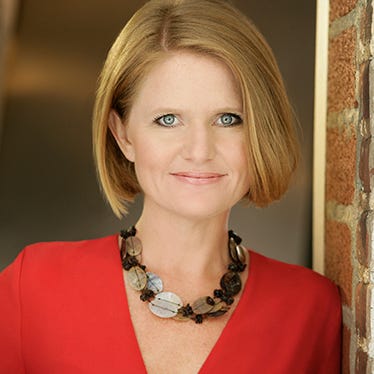Amy Summers of Pitch Publicity previews a virtual seminar series that begins March 16 on addressing sexism in the natural products industry.

The elephant in the room, according to the dictionary, is a major problem or controversial issue that is obviously present, but avoided, as a subject for discussion because it is more comfortable to do so.
In my profession of public relations, being silent about elephants is not the best strategy. Silence usually creates more problems that are often mislabeled as “PR problems.”
These elephants are often ethical problems resulting from bad behavior or poor decision-making. Public relations, however, can help solve these problems.
How to face the elephant
In my entrepreneurial quest to find more accessible and empowering ways to address these elephants, I’m directing a virtual seminar series (“Identifying the Elephant in the Room: Critical Communications Strategies in the Face of Sexism”) through my communications mentorship company, INICIVOX, for the natural products industry.
Starting March 16 and running through April 20, professionals from various sectors of the industry will gather on the topic of sexism. During six sessions, these professionals will share experiences—both positive and negative—while giving others the courage to learn, ask questions and seek out ways to use their voices and influence to positively change and improve our communication styles, behaviors, environments and attitudes that support sexism and make it so pervasive.
As a female founder who at the age of 27 started her own PR firm in the natural products industry, I’ve built a successful business. It hasn’t always been easy, though. I’ve done it without any investors, very little mentorship and barely any support from other women, while making my own mistakes and learning along the way.
As a public relations practitioner, I have a responsibility that extends beyond the obligations of my clients. At this point in my career, I feel I can use my networking and communications skills to bring together leaders of this industry to create a more inviting and supportive atmosphere for the next generation of female and marginalized entrepreneurs.
Wouldn’t it be great if every generation of leaders in this industry could impart some knowledge to the next generation of leaders, so they may succeed and thrive more quickly? It will take a huge communications effort and it must be ongoing. This conversation can be led by companies, organizations, leaders, conference organizers and other initiatives.
But the responsibility should not fall on one group. It should be a combined effort, so the message is repeated and repeated until a new culture and way of working is accepted and becomes the norm.
Jumping straight to the action step to try to fix a problem is not the solution. That’s because by doing so, we miss the important research and engagement steps with our community that will shed light on what is needed—or wanted—to realize better ways to address problems with sexist behavior and inequalities.
A formula I have found to be helpful on complicated communications issues—and one we will be using in “Identifying the Elephant in the Room”—begins with having a conversation, listening and learning, being challenged, and then doing something about it. Here’s how to get started with addressing your own organization’s “elephants.”
Have a conversation
When it comes to topics like sexism, racism, ageism and heterosexism, companies are quick to want to check a box and move on. Having a conversation on these topics is a little intimidating and time-consuming, and many people are not sure how to start the discussion, due to lack of understanding (and sometimes lack of interest) around these issues.
Employing more women in the executive suite, promoting a person of color to chief diversity officer or sponsoring an LGBTQ+ event may be a good start. However, these actions just check a box that you are aware of the issues. They don’t necessarily improve working conditions. To get to that level, we must go deeper and that starts with open dialogue, or what is also known as a "two-way street" approach in public relations.
In our “Identifying the Elephant in the Room” series on racism, Kamelya Hinson, one of our speakers during the health care panel who was a senior health communication specialist at the Centers for Disease Control and Prevention (CDC), described feeling her “opinion as a Black woman wasn’t considered” at work.
She said organizations often rely heavily on message testing and statistics rather than hearing feedback of their own diverse, internal teams. Fellow panelist Isa Miles, Hinson’s colleague from a different department at the CDC, said that frequently Black lives are discussed without Black people at the table. Miles poignantly pointed out, “My lived experience gives me an additional qualification on top of my education,” and she added these “are some of the reasons we are missing the messaging with audiences we need to be reaching.”
Having conversations like these are the starting point to addressing what others are seeing, hearing and feeling both internally and externally so we know what issues need to be prioritized and addressed.
Try to stay away from organizing “expert panels” when addressing elephant-in-the-room topics. To get to the core of the problem, we must invite a diverse group of people with different perspectives and experiences to help us see what’s really going on behind the curtain.
Listen and learn
On any elephant-in-the-room topic, everyone is at a different stage of learning. Recognizing and accepting this is critical to ensuring the conversation is being heard by all.
This is why I’m a fan of virtual events for topics that are deemed controversial or difficult to have—and certainly sexism falls into this category. Participants of “Identifying the Elephant in the Room” seminars can join and ask questions anonymously, or just sit back and observe.
Some might choose to not attend the live sessions and watch the replays at their own pace when they are ready. All these options are viable and necessary if you are going to expand your message to the audience that needs to hear it the most.
The important thing is to not force anyone to listen, but rather make the opportunities readily available, and continue to encourage and invite. Do not give up on anyone. We all learn at our own pace.
As a participant, avoid making quick judgements based on the title of the conversation, or who is speaking on the subject matter. Once you are in the room, come with an open mind and heart. Be ready to hear things that may be new to you and be open to different perspectives.
Be challenged and do something
Mentorship is just a buzzword unless we are using it to challenge others to advance in their skills, abilities, knowledge and/or thinking. Awareness is step one and is achieved through the initial steps of having a conversation, listening and learning. But once you impart knowledge to others, we must challenge them to do something about it.
Thirteenth-century Persian poet Rumi said, “Yesterday I was clever, so I wanted to change the world. Today I am wise, so I’m changing myself.”
Tackling issues like sexism and gender parity may seem like a difficult feat to most, but we will eventually get there if we start with one change with ourselves, then challenge our colleagues to do the same, like a relay race.
Unless we are talking about elephant-in-the-room issues openly and publicly, things are going to stay the same or get worse. Although one conversation, or one seminar series, is not going to fix sexism, every conversation opens a door.
These conversations reveal your allies, where you can get support, where you should be spending your time, talent and resources, and maybe, most telling, who you should stay away from.
Editor’s note: Register for “Identifying the Elephant in the Room: Critical Communications Strategies in the Face of Sexism” at https://inicivox.vfairs.com. Then join Amy Summers and industry leaders for an in-person networking workshop at SupplySide East on April 19 at 11:30 a.m. ET to level up your networking skills based on insights from the sexism seminar series.
Amy Summers launched Pitch Publicity in 2003 in the face of a rapidly changing climate for communication and media relations. She has decades of experience working with major clients in the natural products industry to increase visibility and exposure to targeted audiences through national publicity exposure across all mass media outlets, high-level fundraising campaigns and developing key strategic communication strategies. Amy currently serves as a board member and founding partner of Naturally New York.
About the Author(s)
You May Also Like






.png?width=800&auto=webp&quality=80&disable=upscale)